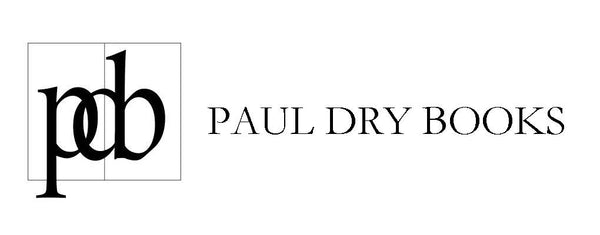Awaken, Delight, and Educate
We say we publish books “To awaken, delight, and educate.” I’d like to tell you what these words suggest to me.
Awaken
When I was trying to produce a tagline for Paul Dry Books, I recalled reading an apocryphal story about Aristotle. Here’s a brief account of it. When he prepared for sleep, Aristotle would take in his hand a bronze sphere (the world?) and drape his arm over the bed. On the floor under his hand, he placed a pan. When he began to doze off, his fingers released their grip, and the sphere clattered on the pan, thus causing enough noise to awaken him from his oncoming sleep. In this way Aristotle remained, as the report suggests, awake to the world’s great questions. As if to voice agreement with Aristotle’s goal, but somewhat humorously dissenting from the method, Thoreau in the chapter titled “What I Lived For” in Walden writes, “We must learn to reawaken and keep ourselves awake, not by mechanical aides, but by an infinite expectation of the dawn, which does not forsake us in our soundest sleep.” At Paul Dry Books, it’s exhilarating to publish books that might awaken us as readers to the kind of thoughtfulness the story of Aristotle stands for and to Thoreau’s infinite expectation.
Delight
For my use of delight I adduce lines from Paradise Lost. In his poem Milton uses the word thirty-six times. Here’s one instance I like because it connects delight to awake. I found the reference in Webster's when I looked up delight. With a concordance you can find uses that will please (delight) you, too. Adam speaks in these lines:
Awake,
My fairest, my espous'd, my latest found,
Heaven's last best gift, my ever new delight!
Paradise Lost, Book. V, l. 17
At least since Milton awaken and delight have kept excellent company with one another! While suggesting the sweet presentiment of eros fulfilled, Eve’s power to delight is pure. As the central verb in our motto, delight pivots the reader from wakefulness to a readiness for education.
Educate
The Latin ancestor of our verb to educate is educere which means both to bring up and to bring forth. How do books educate in this sense? Don’t we use books to fill our heads—with facts, images, and thoughts? Here’s one way to answer the question. Books, the good ones, respond to the questions readers put to them. The better the books, the more and deeper the questions they themselves have prompted us to ask of them. These questions and the answers we find create a kind of conversation. In this conversation, which we have with wonderful books, we bring forth from ourselves musings and thoughts, which, by being articulated, deepen us. These conversations that books prompt and enrich educate us.
So these are some of the associations that the phrase “awaken, delight, and educate” has for me. As you read the descriptions of our books in this catalogue, I hope you find titles that interest you enough to purchase. We have published them with the goal to awaken, delight, and educate our readers.
—Paul Dry
